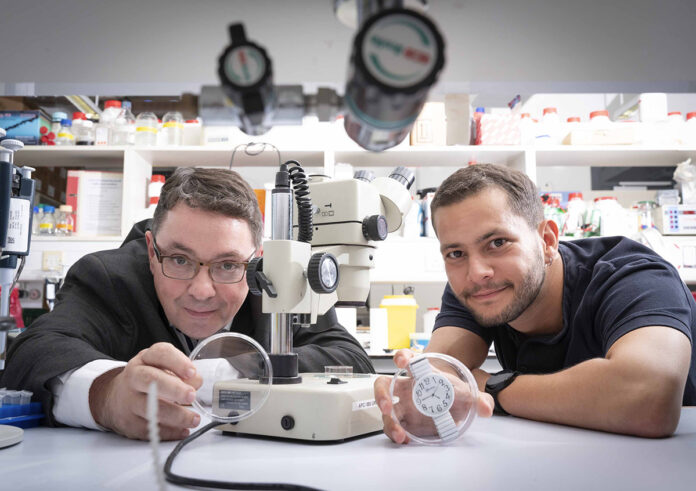
A pioneering study has uncovered the vital role that gut microbiota plays in regulating stress responses by interacting with the body’s circadian rhythms.
The findings open the door for developing new microbial-based therapies that could help individuals better manage stress related mental health conditions, such as anxiety and depression, which are often associated with alterations in circadian and sleep cycles.
This breakthrough research from University College Cork and APC Microbiome Ireland – a Research Ireland Centre – offers compelling evidence that the trillions of microorganisms in the gut orchestrate the body’s hormonal responses to stress in a time-dependent manner, paving the way for new therapeutic approaches targeting the gut-brain axis.
Published in Cell Metabolism, this study shines a spotlight on the intricate relationship between the gut microbiota and the hypothalamic-pituitary-adrenal (HPA) axis, the body’s central stress response system. The research demonstrates that depletion of gut microbiota leads to an hyperactivation of the HPA-axis in a time-of-day specific manner, which alongside with alterations to the brain’s stress and circadian responding regions, results in altered stress responsivity across the day.
The study further identifies specific gut bacteria as key influencers of this circadian-regulated stress mechanism.
This groundbreaking discovery opens up new possibilities for psychobiotic interventions aimed at improving mental health outcomes by targeting gut bacteria that influence stress regulation.
IMPACT AND IMPLICATIONS
With modern lifestyles increasingly disrupting circadian rhythms through irregular sleep patterns, high stress and poor diet, this research underscores the importance of the gut microbiota in maintaining the body’s natural stress-regulation processes.
“This study is highly significant in that it links changes in microbiome to stress hormone release” said Professor Paul Ross, Director of APC Microbiome Ireland. “At APC, we are committed to unravelling the many ways in which our gut microbiome can impact human health and physiology, and this research uncovers the potential of manipulating the microbiome to manage or even prevent stress-related conditions.”
The study was conducted at APC, a global leader in microbiome research based at University College Cork. Principal Investigator Professor John Cryan’s team has long been at the forefront of gut-brain axis research, and this new discovery adds to the growing body of evidence that gut bacteria have far-reaching effects on mental and physical health. First author was Dr Gabriel Tofani.











